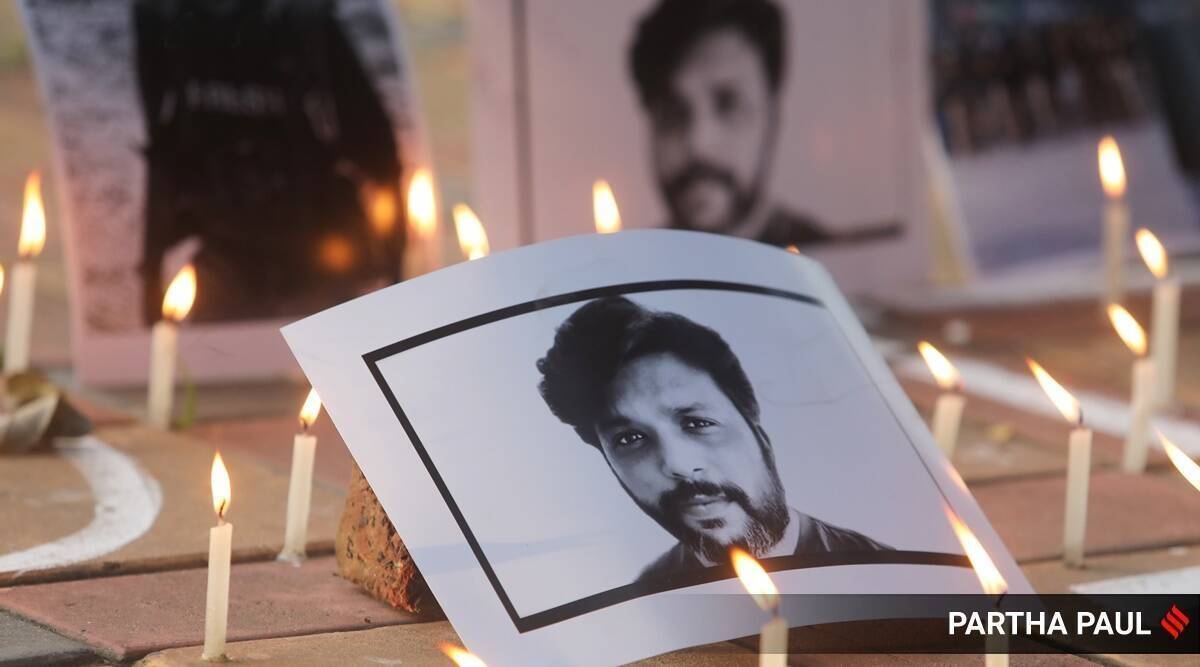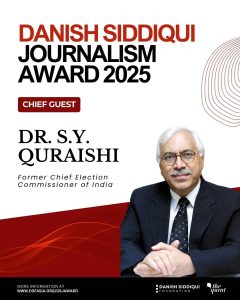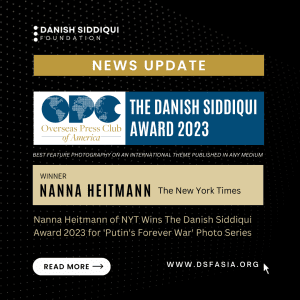Press Release: Murdered Journalist Danish Siddiqui Is Awarded his Second Pulitzer Posthumously; His Parents file New Evidence Against the Taliban at the International Criminal Court
Yesterday, Danish Siddiqui, the photo-journalist who was tortured and killed by the Taliban, was formally awarded his second Pulitzer Prize for Feature Photography — for his groundbreaking work in documenting the COVID crisis in India — posthumously, at the Pulitzer Prize ceremony in New York.
On the same day as the awarding of the prize, one of journalism’s most coveted, Siddiqui’s parents filed additional evidence pertaining to their complaint, dated March 22, 2022, with the International Criminal Court (ICC) Prosecutor, asking for an investigation into their son’s killing and bringing those responsible, including leaders and high-level commanders of the Taliban, to justice. The complaint as well as the additional evidence was filed through Avi Singh at Cicero Chambers, a lawyer with extensive experience in international criminal law, who was representing the family.
The evidence comprises affidavits, a medical opinion on the autopsy, and a copy of a WhatsApp chat that allegedly took place between members of the Taliban.
As a photojournalist, Siddiqui had covered major conflict zones and crises, including the wars in Afghanistan and Iraq, the Rohingya Refugee Crisis, the Hong Kong Protests, and the Nepal Earthquake. On 16th July 2021, Siddiqui, known not only in India and throughout the world, but also in Afghanistan, for his photographs from the frontline, was embedded by Reuters with the Afghan Special Forces in Spin Boldak, where he was injured in an attack by the Taliban. He was taken to a mosque, historically a place of refuge, for medical treatment. The mosque was attacked by the Taliban, and Danish was taken into custody, tortured, and murdered. Reports say that he was attacked by the Red Unit of the Taliban. After his killing, his body was mutilated, including being run over by a heavy vehicle in public. His body revealed marks of brutal torture and 12 bullet entry and exit points. These were received after his capture, as his bulletproof jacket has no bullet marks.
From multiple accounts, it is clear he was tortured and killed because he was a journalist and an Indian. A report published by the Washington Examiner, for instance, says, “The Taliban are always brutal but likely took their cruelty to a new level because Siddiqui was Indian.”
A documentary on Danish Siddiqui’s torture and killing, and the mutilation of his body after his death, titled Killed By The Taliban: The Long Road To Justice, makes these points succinctly as well.
“Danish, our loving son, was murdered by the Taliban for simply carrying out his journalistic duties,” said Danish’s mother. “While his second Pulitzer Prize makes us proud, we hope that the International Criminal Court will bring those responsible for his torture and death to justice. This prestigious prize does justice to his work, honesty, and integrity. But for journalists like him to continue to showcase the pain and suffering of people with courage and bravery, justice must visit those responsible for his murder as well.”
The International Criminal Court has been engaged in an ongoing investigation of international crimes, including crimes against humanity and war crimes, in Afghanistan, over which it has jurisdiction after Afghanistan’s government acceded to the Rome Statute.
“The new evidence that we have submitted to the International Criminal Court, along with what has been submitted till date, goes far in proving the culpability of the Taliban, including their leadership, in this heinous crime,” said Avi Singh, the lawyer representing Danish Siddiqui’s family. “The Taliban targeted and killed Danish because he was a journalist and an Indian. That is an international crime. In the absence of rule of law in Afghanistan, the ICC has jurisdiction to investigate and try the perpetrators of Danish’s murder. As the Taliban continues to strive for international legitimacy, it must face accountability for its past actions.”
The torture and murder of Danish Siddiqui are not isolated cases. The Taliban’s military code of conduct, published as the Layha, has a policy of attacking civilians, including journalists. It has claimed responsibility, with impunity, for the targeted abductions and killings of journalists and other members of civil society. The United Nations Assistance Mission in Afghanistan documents over 70,000 civilian casualties attributed to the Taliban.
The Taliban leadership is responsible for the torture and killing of Siddiqui as well. They were aware of the incident and, also, have done nothing to punish the perpetrators. Those named in the complaint include:
- Mullah Hibatullah Akhundzada, Supreme Commander of the Taliban
- Mullah Hassan Akhund, Head of the Taliban Leadership Council
- Mullah Abdul Ghani Baradar, Chief Spokesperson and Head of the Taliban’s Political Office in Qatar
- Mawlawi Muhammad Yaqoob Mujahid, Minister of Defence, Taliban
- Gul Agha Sherzai, Governor of the Kandahar Province
- Zabbihullah Mujahid, Taliban Spokesperson
- Local Commanders as well as Perpetrators
This case of torture and killing constitutes not only murder but a crime against humanity and a war crime.
It is hoped that the ICC Prosecutor will do the utmost, in collaboration with the international community, to investigate the torture and murder of Danish Siddiqui, and the mutilation of his body, and bring the perpetrators to justice.
“We thank the Pulitzer Prize Board for this honor that they have bestowed on our son for the second time,” Danish Siddiqui’s father, said. “We hope that this Pulitzer, by virtue of the fact that it is posthumous, will remind the world of the extreme challenges and threats journalists face in reporting from conflict zones and places of crisis. Why is our son not able to collect his prize today? What has been done to punish the perpetrators responsible for our loss? This is a question that only the International Criminal Court can answer.”
We urge the ICC to begin an investigation in earnest and for anyone with evidence or first-hand knowledge, to come forward to assist in securing justice.




